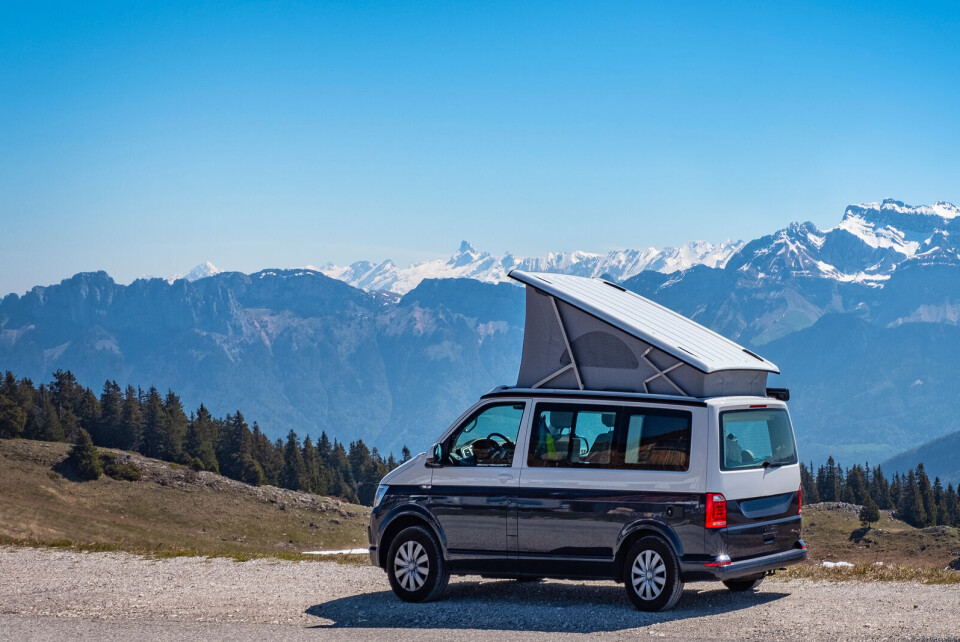-
Britons are the largest foreign community of second-home owners in Nouvelle Aquitaine
See which other departments in the region are popular with British nationals
-
Travellers risk extra costs under new Eurotunnel ticket rule
Some fare options are less flexible and less forgiving of lateness
-
May will be difficult month for train travel in France, warns minister
Two major train unions are threatening to strike and are ‘not willing to negotiate’, he says
Camper van holidays booming in France after covid restrictions ease
France is seeing a recent upward trend for buying and renting van conversions over traditional motorhomes

Camper van companies are enjoying a surge of interest following the easing of Covid restrictions and a growing trend for four-wheeled ‘home’ travel.
Trigano, the French company which owns most of the big-name motorhome brands in Europe, said it delivered 15,800 vehicles in March to May 2021, a jump of 155% compared to last year when lockdown was in full effect, and 26% up on the same period in 2019.
The firm warned that problems getting base vehicles for van conversions, due to a worldwide shortage of computer chips, would limit further growth.
Shortages mean prices for 2022 models will go up by between 5% and 10%.
The rental market is experiencing a similar boom
Early estimates were that this year would see a 50% rise in the number of people hiring campers, and by mid-August all the indications were that this figure would be met.
Yescapa, founded in 2012 in Bordeaux, is now Europe’s largest campervan hire platform. Its French brand manager Olivier Puybasset said the 2021 holiday season had been dominated, predictably, by French people travelling in France, rather than tourists from overseas.
“Normally, a significant part of the business is people from places like Australia or the United States, but the Covid restrictions have meant hardly any have come this year,” he said.
Earlier this year, the company took over a German firm and now has around 12,000 campervans on its site, up from 7,500 last year. Some 5,000 of these are in France. Overall, it expects the 400,000 people who hired a van last year to rise to 600,000 this year.
Prices on its website vary from €55 a day for a homemade conversion sleeping two to €110 a day for a nearly-new VW pop-top sleeping four with an automatic gearbox.
‘Van life’ phenomenon
Mr Puybasset said the ‘van life’ phenomenon, where predominantly younger couples buy vans, convert them to campers, then document their travels on social media, is spilling over into the hire market.
“There is a lot of interest in converted vans now, or van-based campers, and a bit less demand for traditional camping cars,” he said.
Other similar campervan websites include Wikicampers and Hapee, both of which are owned by a large motorhome seller, Groupe GLC.
Mr Puybasset said his firm takes money both from owners who lend their vehicles and from the holidaymakers who hire them.
Lenders will pay 4%, meaning that a van hired for €100 a day will bring in €96 for owners. For hirers, the charge is 15%, making the cost of the van €115 a day.
On top of that, compulsory insurance starts from €13 a day, including 24- hour breakdown cover, civil responsibility, legal defence in case the hirer is sued, driver injury cover, and vehicle accident insurance.
The latter has a high excess, which means the hirer will pay the first €1,500 of most claims. If the damage is to the upper parts of the van (usually caused by attempting to enter car parks with height barriers), the excess rises to €2,500, while it falls to €300 for windscreen or other glass breakages, and €380 if the damage is caused by a natural catastrophe.
Yescapa offers a more expensive premium insurance package, which lowers the excess to around €500.
In addition, most hirers must put down a deposit of around €1,500. In France, this is normally done with a cheque, which is handed back at the end of the holiday.
“Only 8% of hires have any problems, and these include things as minor as a scratch on the bumper or cupboard doors not shutting properly,” Mr Puybasset said.
“Most people take care of other people’s property as a matter of course.”
Lenders have to do most of the work in setting up the hire, including writing the initial vehicle specification for the website, agreeing the deal with clients, and managing the handover and return of the vehicle.
Income from hires has to be declared to tax authorities, but if it is below €7,500, it is considered normal income and there is no need to set up as a business.
Very few of Yescapa’s hirers make over the €7,500 limit, although there are a significant number who consistently earn €5,000 a year.
Like other sharing platforms, including Airbnb, Yescapa is obliged to pass on details of sums earned to tax authorities each year.
Related stories
These are the rules for wild camping in France
Are we allowed to leave our caravan parked on our land in France?
























